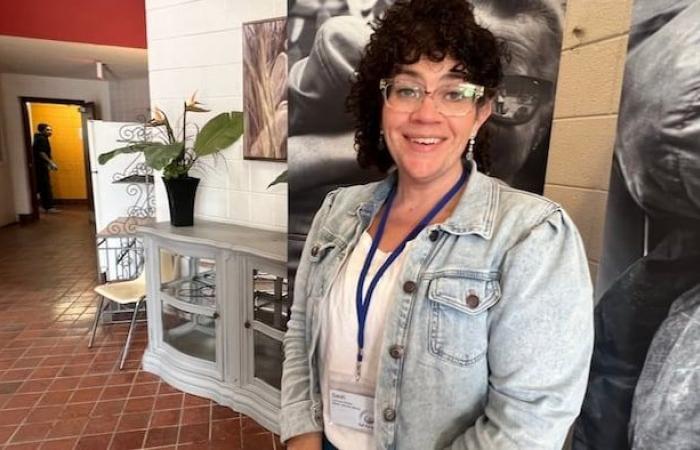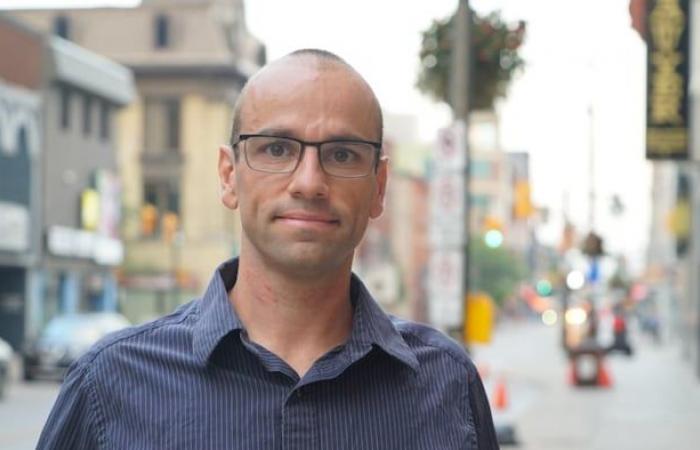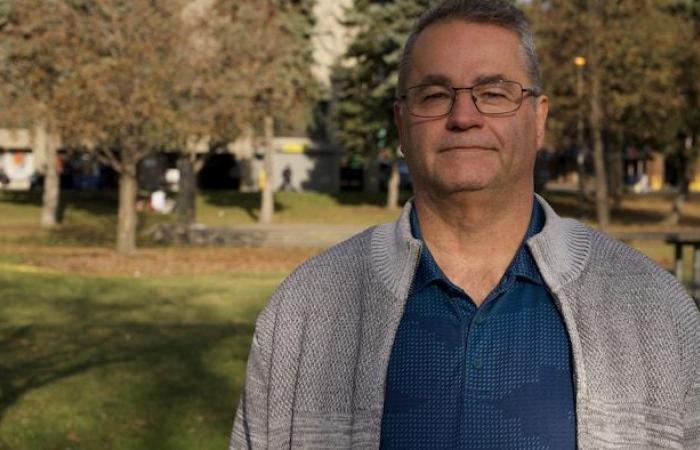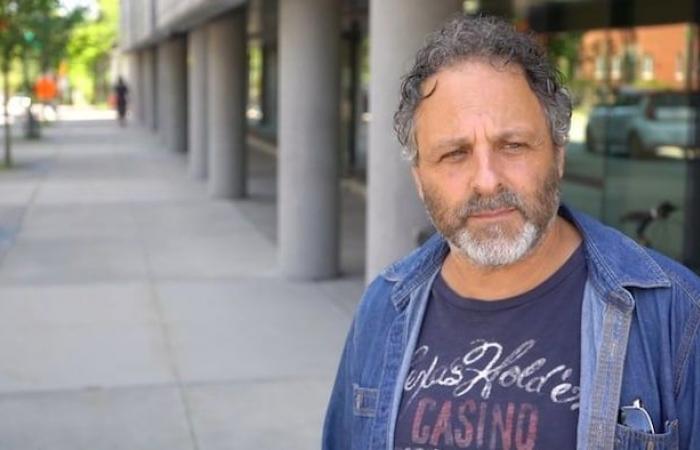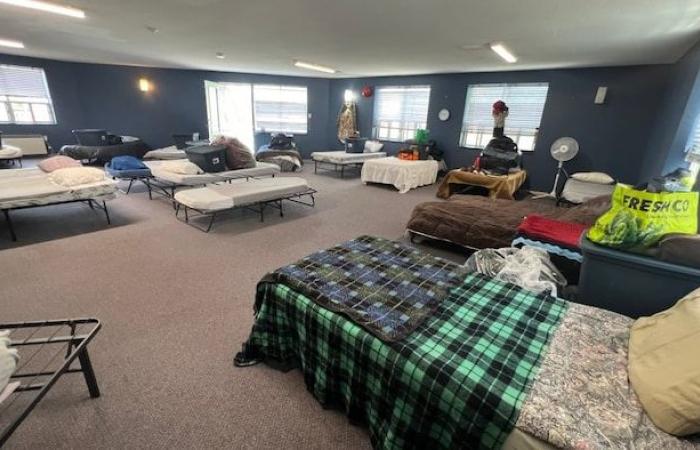A London, Ont., homeless organization is calling on the public for monthly donations of $50, amid rising homelessness and insufficient resources. A “creative” strategy according to experts, who fear, however, that it will contribute to disempowering government authorities.
With its new campaign, Ark Aid Street Mission aims to raise funds in order to finance, in particular, 200 respite places and 584,000 meals for people experiencing homelessness throughout 2025.
The organization has always used fundraising, but chose to go a little further this time by requesting a monthly commitment from donors.
The request is bold
recognizes the general director of Ark Aid Street Mission, Sarah Campbell, who adds that the money is necessary to ensure the continuation of these services.
We know there are many people who struggle with homelessness and every day people come to us and we don’t have space for them
she explains.
Very often, government funding is short-lived and we do not know if we will be able to continue offering services. So our goal is to take the money raised, add it to government grants and make a bigger impact.
Open in full screen mode
Sarah Campbell is the executive director of Ark Aid Street Mission in London.
Photo : CBC / Andrew Lupton
Late last year, the City of London approved $4.2 million in emergency aid to allow the organization to remain active until March 2026. In November, the federal government also announced that it would provide London with $5 million in funding for shelters. However, this amount has not yet been distributed to social service agencies.
With its fundraising, Ark Aid Street Mission also wants to finance 30 more beds in its night shelter which already has 90, and put money aside for potential future needs.
London’s shelters are constantly full and many homeless people have to spend the night outside even during periods of intense cold.
An approach that concerns experts
The financial precariousness of this organization is far from being a unique case in London, according to Western University professor Abe Oudshoorn, who is interested in public policies related to homelessness.
He indicates that many social service agencies are facing a lack of provincial funding, in particular, and therefore must devote quantities astronomical
time and energy in search of additional funds, space and personnel.
Having to chase down core operating funds year after year places a heavy burden on organizations that serve those most in need.
Open in full screen mode
Abe Oudshoorn is a professor at Western University and his research interests include homelessness. (Archive photo)
Photo: CBC / Kate Dubinski
In such circumstances, the coordinator of the Sudbury Homeless Network, Raymond Landry, observes that many agencies are forced to find creative ways to meet needs
.
There is no guarantee that donations will flow, he points out, becausethere is fatigue in terms of people’s generosity
especially in a difficult economic climate.
Mr. Landry is, however, convinced that If Ark Aid Street Mission is very successful in its efforts, we can be assured that there are others who will copy
this kind of fundraising.
For him, this initiative is reminiscent of the growing recourse of certain Ontario hospitals to 50/50 draws to finance, among other things, the purchase of equipment.
Whether people are asked to donate monthly or take a chance on a fundraising lottery indicates very clearly the need and gaps at the primary donor level.
he explains.
This is a serious problem.
-
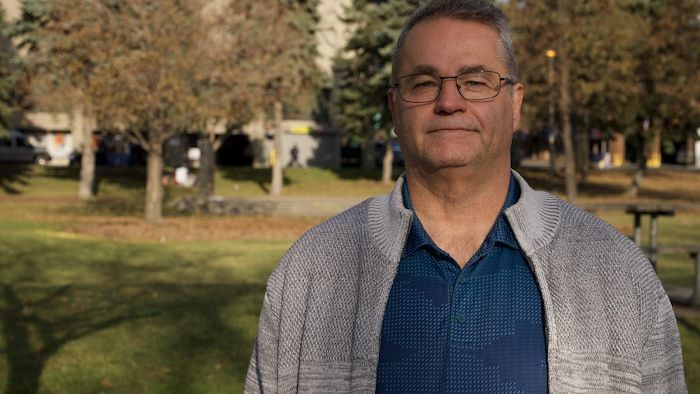
Open in full screen mode
The province must better fund social services, according to Raymond Landry. (Archive photo)
Photo: - / Maxime Beauchemin
Same story with social work professor at Dalhousie University in Nova Scotia, Jeff Karabanow.
He says he understands that Ark Aid Street Mission wants to respond to a crisis and help people right away
but fears that the organization’s approach will have collateral effects.
What is the message? If governments see that there are people who are going to do it, they are not going to give more money to this type of organization because they are going to wait for the community to get involved.
he fears.
Homeless people are citizens of Canada and the government must be at the table to help them.

Open in full screen mode
Jeff Karanabow is a professor of social work at Dalhousie University in Nova Scotia. (Archive photo)
Photo : CBC
A long-term strategy called for
The executive director of Ark Aid Street Mission, Sarah Campbell, assures that her organization continues to seek support from various levels of government.
Just last week, the Association of Municipalities of Ontario released a study revealing that more than 80,000 people would be homeless in the province in 2024.
The group is calling for an additional $13 billion over a period of 8 to 10 years to combat homelessness.
Last December, the Ford government announced an investment of $50 million in affordable housing as well as $20 million to expand shelter capacity and create additional temporary accommodation spaces.
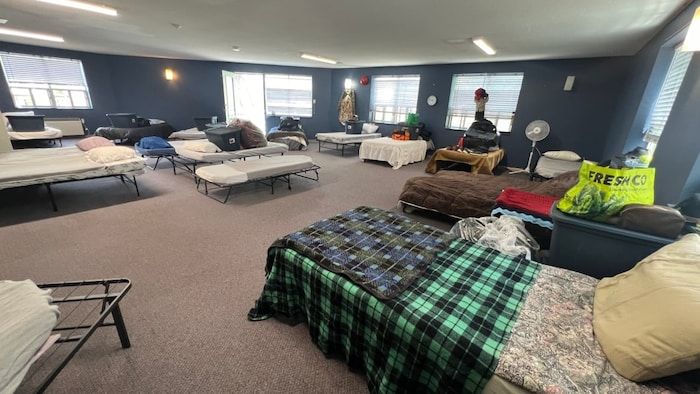
Open in full screen mode
With its fundraising campaign, the Ark Aid Street Mission organization in London wants to create 30 more beds in its night shelter.
Photo : CBC / Andrew Lupton
Donating money for emergency accommodation, in the short term, is necessary
analyzes Professor Éric Latimer, researcher at the Douglas Research Center at McGill University and who is interested in homelessness.
He judges that the different levels of government are not doing enough to respond to the homelessness crisis in the country.
We don’t want people to be forced to live in camps or in parks, especially in winter. But the real risk, as I see it, is that governments are content to finance emergency accommodation and do not at the same time finance in the medium and long term a strategy to really reduce homelessness
he explains.
The researcher indicates that he would like to see measures like those adopted in countries like Finland, which have managed to significantly reduce homelessness in recent years.
With reporting from CBC’s Isha Bhargava

